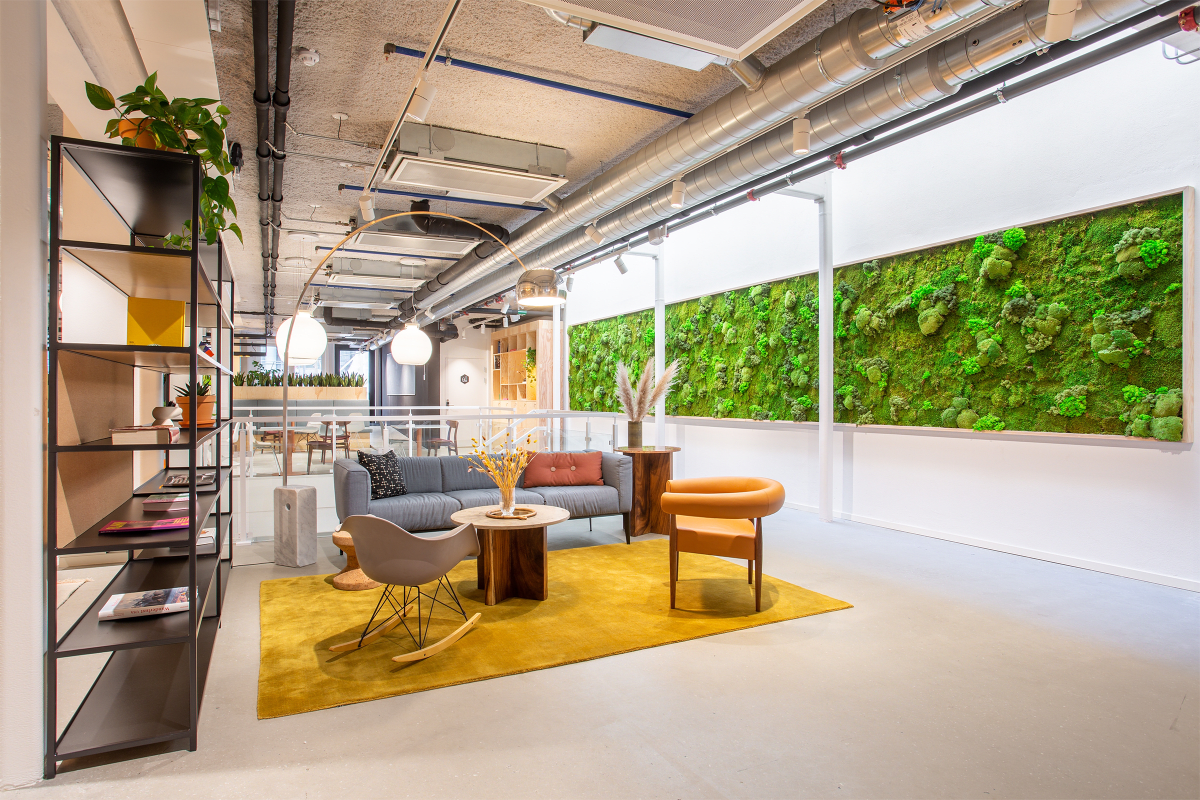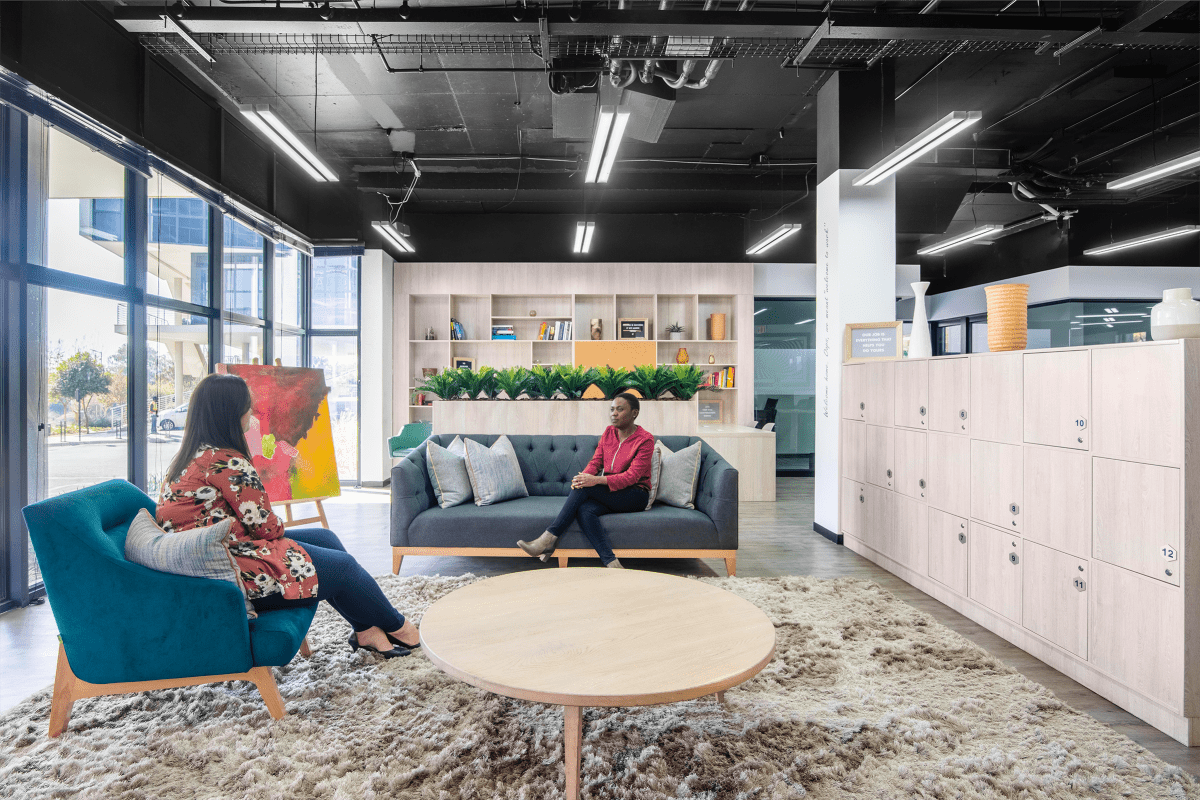During a roundtable discussion, Arvind Kumar, Global Vice President of Indirects at NTT Global Sourcing, shares his experience of making the shift to hybrid working with Fatima Koning, Group Chief Commercial Officer for IWG.
With a global workforce of 300,000 people, NTT (Nippon Telegraph and Telephone Corporation) helped to lead the way in the accelerated shift to hybrid working during the early stages of the pandemic.
Indeed, it was one of the first major multinational corporates to embrace hybrid across its full global network, providing its employees with the flexibility to work in different locations across the globe.
In March 2021, the tech giant signed a record-breaking deal with IWG, giving its employees access to the flexspace provider’s worldwide network of 3,500 workspaces. The move has proved popular amongst its employees, who benefit from the freedom to choose how and where they work.
Of course, there's still much to be learned about the global roll out of hybrid working. To discuss their journey so far, Arvind Kumar, Global VP of Indirects at NTT Global Sourcing became the latest senior executive to take part in C-Suite Conversations, by IWG - a series of exclusive private roundtable discussions that bring together thought leaders, corporate innovators and founders.
The series, attended by top executives of major corporations, provides a platform for leaders to share key learnings from their hybrid working experiences. Kumar was answering the questions (and the concerns) of those executives, to help guide them on the transformation to hybrid and share insight on any challenges they might face in the new world of work.
“The hybrid model is undoubtedly here to stay, so it’s about how each company adopts it and where we all fit into that journey to make it a great experience,” he said.
Here, we dive into six of the biggest takeaways inspired by the discussion, based on the learnings of NTT and companies of other sizes…
- Hybrid working allows companies to put people first
From a better work-life balance and higher job satisfaction to less long commutes to a central HQ, NTT has been quick to recognise the benefits of hybrid working on employee health and wellbeing.
Kumar said: “Covid has helped us redefine how people work and who should come to an office, especially in countries such as India where people can be stuck in traffic for three or four hours a day.”
At a time when terms such as the ‘Great Resignation’ and the ‘Great Reshuffle’ are hitting the headlines, hybrid working has never been more important in helping companies such as NTT attract and retain talent, whose ultimate desire is to have the freedom to choose how and where they work.
Fatima Koning has spoken extensively on the topic: “The employee’s voice has become prominent in defining what the office should be in the future – what the purpose of the office is, what facilities it should and shouldn’t have, and its location."
Research has shown time and again that hybrid work is very popular with employees. Just last year, an IWG survey found that 72% of office workers would prefer a hybrid way of working to a full-time return to the office – even if reverting to the old Monday-Friday routine meant earning more money.
- The ‘hub-and-spoke’ model is effective
According to Kumar, hybrid working has “really opened up the opportunity to look at the ‘hub-and-spoke’ model”, whereby a central HQ is complemented by a network of satellite workspaces.
He firmly believes that hybrid must be viewed as a long-term business strategy, especially given that companies will need time to review their existing real estate commitments, as well as to put a well-thought-out hybrid strategy in place. For the telecoms giant, the transition is an ongoing process – especially considering the scale at which it is being rolled out.
Acting on the advantages of the hub-and-spoke model that it noticed early on in the pandemic, NTT has been investing in IWG-powered “satellite” offices across the world and it is focusing on opening more local hubs in the coming months and years.
Kumar said: “In the past, we would just go out and get a long-lease office with 50 seats or 100 seats. But flexibility is very important in this current environment. IWG has the ability to take on bigger deals and some of the responsibilities that come with this, and it also has the scale and wherewithal to support everybody.”
Reiterating that hybrid is here to stay, Kumar recommends that the sooner a company makes the transition, the sooner it can also address the process of releasing legacy commitments in favour of a fully flexible future. The ultimate result is that businesses can carve out a bespoke real estate strategy that’s better for their bottom line and their employees, and that relinquishes them from the rigidity of long-term commercial leases.
- Be smart and sensitive about implementation
Whether a company has a team of 30 or tens of hundreds of thousands of people, the implementation of hybrid working needs to be done in a way that gets everyone onboard, especially when working cross-culturally. “Some things can stay common but other things need to be localised,” says Kumar.
“Have you ever really thought about the local dynamics, the cultural dynamics of companies? Japan is totally different, India is totally different, the US is totally different. So how do you build a hybrid programme that everyone follows? It has to have the ability to work in all regions and address bespoke challenges,” says Kumar.
Even though NTT - as a global enterprise - has hundreds of related companies operating underneath its umbrella, it doesn’t have a “mandate culture”, Kumar explained. He said: “We are very collaborative and let everybody have opinions about how they want to work.”
So how has NTT managed to take a people-led approach to hybrid working? The key was finding a suitable global partner who can cater for the range of needs and requirements that, in turn, made it easier to get buy-in across NTT’s global network. Kumar added, “This is about having all our hybrid work needs catered for by IWG. We needed something that could work across all markets and that could be governed centrally by NTT. We provide the backbone so our companies and people can leverage the global deal that we have put in place.”
- Culture is created by leaders not offices
In a hybrid set-up, some employers might be concerned that company culture is undermined by staff not being present in a dedicated office on a daily basis. But NTT has discovered first-hand that this doesn’t have to be the case. Although it is helpful to have access to customisable workspaces from IWG’s brands (complete with inspiring and interactive spaces for collaboration and networking), NTT fundamentally believes that culture is created by people.
“Two years ago, we were speaking about offices as a place to bring everyone together and build a culture,” Kumar said. “But that has now shifted. People need to understand that company culture is built by leaders – it’s not about a brand or a logo that you put on the wall of a building. People should not forget that it is the leaders who run the business, who build the culture, own the culture and drive the culture today, tomorrow and forever.”
- Smart technology needs to be wired in
“Office and workspace design in a post-Covid world has changed not least because how we are actually using these spaces has fundamentally changed. But so has how we manage that space,” said Kumar. “There is a basic level of technology that needs to be implemented as a minimum in a hybrid world.”
With the advancement of the “Internet of Things”, smart technology will increasingly be integrated within workspaces to help monitor a myriad of things, including occupancy. In the case of NTT, it has an app that allows employees to see if there is desk space in advance of them showing up, which helps manage hybrid working more efficiently as well as for people, knowing others will be around for collaboration.
- Cybersecurity is a top priority
“Now that people are splitting their time between working from home, a flexspace and a central office, cybersecurity has become just as important as physical security,” said Kumar.
He added: “At NTT, we need to make sure that we have watertight technology so that, as we shift from home, which is open-access Wi-Fi, to a public access environment [in an IWG coworking space, for example] to a fixed dedicated access environment in an office, we are building a cloud structure of security access – a unique VPN that allows you to shift between working from home to a coworking space to the HQ at any time.”
Top-notch technology is also incredibly important for ensuring people remain connected when they’re not all in the same space at any one time. Recent research from Cisco found that 98% of business meetings will have at least one participant joining remotely in a hybrid world, meaning technology has a crucial role to play in ensuring all employees feel engaged and part of the discussion, no matter where in the world they are located.
Looking for a hybrid work solution for your business? Find out how IWG can support you today.






